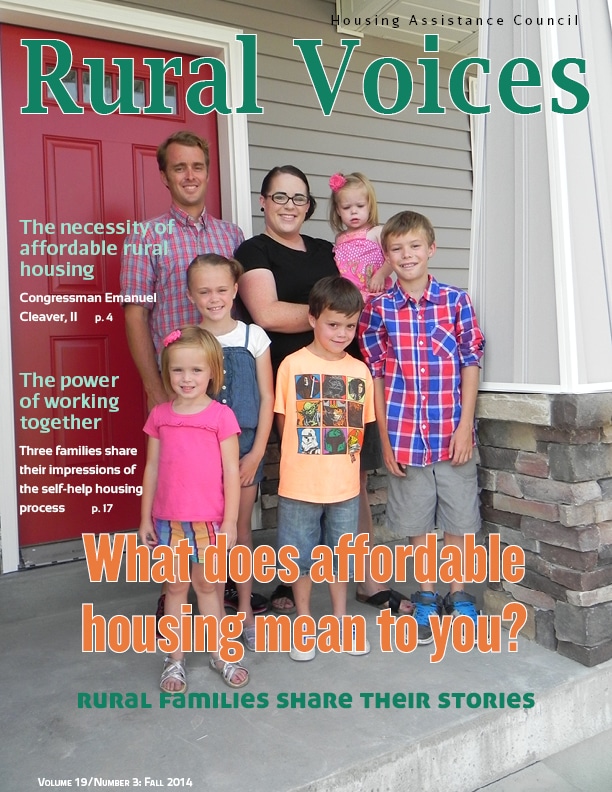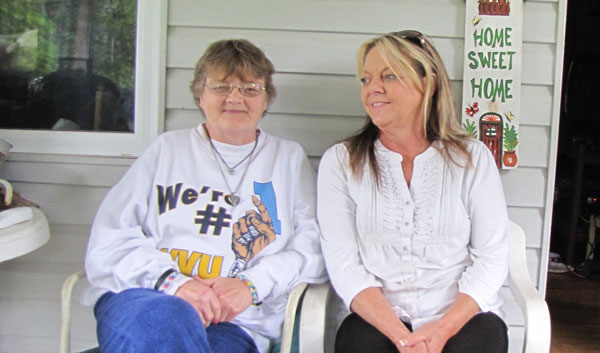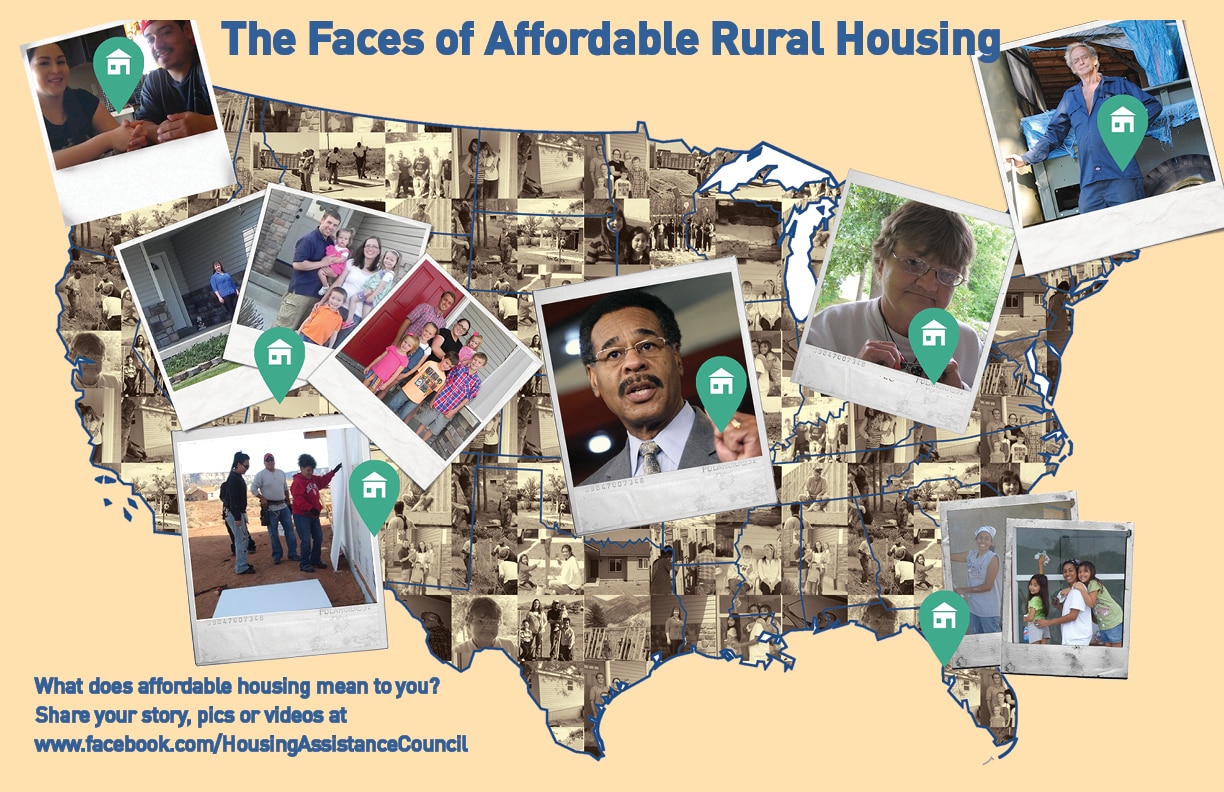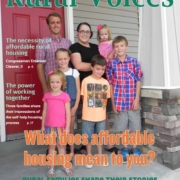Converting a log cabin to a modern home means this widow does not have to live in the cold
by John David, Southern Appalachia Labor School (SALS)
 This story appears in the Fall 2014 issue of Rural VoicesNancy and Cecil (Cork) Labus decided 19 years ago to return home to West Virginia and looked for a rural inexpensive house near where Cork had family. They found an old place that had been unoccupied for a decade near Hico, West Virginia in Fayette County.
This story appears in the Fall 2014 issue of Rural VoicesNancy and Cecil (Cork) Labus decided 19 years ago to return home to West Virginia and looked for a rural inexpensive house near where Cork had family. They found an old place that had been unoccupied for a decade near Hico, West Virginia in Fayette County.
Fayette County is “at risk” as defined by the Appalachian Regional Commission. Recently, USDA-Rural Development added the county to its “Strikeforce” category citing pervasive poverty and related socio-economic factors. People who once worked hard in coal mining and resource-based industries are struggling to survive and many, such as Nancy and Cork, had health issues.
The house that Nancy and Cork found was actually a three wall log cabin structure with an “add on” on the fourth side. The roof consisted of trusses and rafters made from tree limbs. The house was heated by a wood burner and wires dangled dangerously inside and out. Needless to say the rehabilitation of this house presented a unique challenge to members of YouthBuild, AmeriCorps, and volunteer programs with the Southern Appalachian Labor School (SALS) who participated in helping to rehabilitate Nancy and Cork’s house.
 Nancy Labus (left) and Vickie Smith of SALS enjoy a peaceful moment together
Nancy Labus (left) and Vickie Smith of SALS enjoy a peaceful moment together
Vickie Smith, who has been the SALS Construction Manager and licensed contractor for 20 years, had never seen a house like Cork and Nancy’s before. At first Vickie expressed dismay that the home was on the “to do” list for her. But Nancy, who had heard about the SALS program in a newspaper featured article, was tenacious to see her house rehabilitated. She called SALS over and over for at least a year and until she finally prevailed. SALS then engaged in the tedious process of cobbling together funds from the Pittsburgh Federal Home Loan Bank/United Bank’s Affordable Housing Program, USDA-Rural Development’s Housing Preservation Grant program, residual money from other projects, and tax-credit donations through the West Virginia Neighborhood Investment Program to assemble a “Force to Make a Difference” for the Labus family. The job was turned over to Dave Shaver, a seasoned SALS site supervisor, who has experience with turning around almost impossible to rehabilitate houses into something beautiful.
The rehabilitating process was helped considerably by the grateful attitude exhibited by Nancy and Cork. While they had no children together, Nancy had several by a previous marriage. Her son, along with Cork, worked on the roof as “self-help sweat-equity”. Nancy provided holiday presents and cooked for the crew, which was highly appreciated since the house was a long ways from anywhere. Crew members even helped cook and Nancy now jokes that the nearly two year project took longer than needed because nobody wanted to leave. Daniel David, a crew member from the first day of construction, recalls that the house was tough but the family’s support made everyone more than willing to go the extra mile.
Some of Nancy’s most special moments were being around the crew who contributed so much love, sweat, and tears for her “Home Sweet Home” in Almost Heaven, West Virginia.
The energy audit conducted by SALS on the house was off the charts. The entire house had to be insulated and almost everything inside and outside of the house had to be either replaced or rebuilt. The logs of the cabin had to be sheeted inside and out due to cracks, skeletons of critters in the attic had to be removed, and tree branches supporting the roof had to be reinforced. The windows that were popping out had to be custom made, Energy Star rated, and re-fitted. The back entrance with steps had to be totally re-built since access was impossible, not to mention the wood burner and pipe had to be replaced with an Energy Star HVAC (heat/AC) system. The crew installed all new wiring, and due to a new regional rural water system, the Labus’ old well which contained brown iron-water had to be disconnected and new plumbing installed. Crew members also leveled and fixed the floors because the new added on rooms and porches had various levels, support structures, and underpinning. Nancy recalls a situation where it took three hours and a smoking hot drill to install a light due to the logs and hard wood used throughout the house.
Despite everything that had to be done, Nancy could not hide her excitement at seeing her home coming together. She kept telling crew members “Thank you! Thank you!” and says she cried a lot with happiness. She now says she is “real proud” of her home. As she puts it, “The house is no longer an eyesore along the highway”. Some of Nancy’s most special moments were being around the crew who contributed so much love, sweat, and tears for her “Home Sweet Home” in Almost Heaven West Virginia.
The house was completed nearly five years ago. Then, just last year on December 19, 2013, Cork suddenly died after over 30 years of marriage. In remembrance of him and his memories, Nancy wears a heart-shaped pendant containing some of his ashes. She said the welfare department in West Virginia offered to pay $1,250 for his arrangements, but it wanted to put a repayment lien on the house. Proudly, thanks to having the house done by SALS at no cost, Nancy said she turned down the offer. She told us that she wanted to be “debt-free at last”.
As Vickie and I concluded our visit, Nancy hugged us and cried. But the day was not over. The home health nurse was knocking on the front door. It was time to keep hope alive.
Southern Appalachian Labor School (SALS): is a West Virginia nonprofit that provides education, research, and linkages for working class and disenfranchised peoples in order to promote understanding, empowerment, and change. SALS is committed to developing a real comprehension of the social, economic, and legal structures which affect the lives of the Appalachian people.
 The Fall 2014 issue of Rural Voices presents the perspectives of rural families, their challenges of living in unaffordable or substandard conditions, and how they ultimately utilized federal resources to obtain quality housing. These success stories almost always involve innovative community-based organizations that provide the vital link between housing resources and the families who need them.
The Fall 2014 issue of Rural Voices presents the perspectives of rural families, their challenges of living in unaffordable or substandard conditions, and how they ultimately utilized federal resources to obtain quality housing. These success stories almost always involve innovative community-based organizations that provide the vital link between housing resources and the families who need them. The Faces of Affordable Housing
The Faces of Affordable Housing

